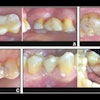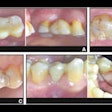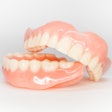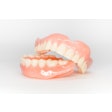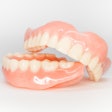A new study reveals that the fewer the teeth a patient has, the more likely they'll suffer from dementia later in life. Patients with the fewest teeth are at the highest risk.
The longitudinal study conducted by University of Kentucky researchers looked at a sample of 144 nuns from Milwaukee between the ages of 75 to 98. The participants are part of a larger study which is studying 678 nuns to discern the link between aging and dementia. Researchers looked at data collected from 40 years of dental examinations, and 12 years of cognitive assessments to arrive at these conclusions.
Some key results:
- One-third of the participants with no teeth or very few teeth (one to nine) had dementia at the first cognitive examination.
- In those with 10 or more teeth, only 17 percent showed signs of dementia at the first examination.
- Of the participants who did not have dementia at the first examination, those with few teeth (zero to nine) had an increased risk of developing dementia during the study compared with those who had 10 or more teeth.
"Our findings suggest that a low number of teeth has an association with dementia late in life," conclude the authors. "It is not clear from our findings whether the association is causal or casual. Further studies are necessary to determine the true nature of the association between tooth loss and dementia."


